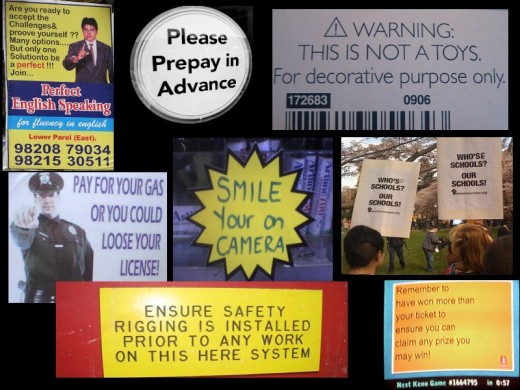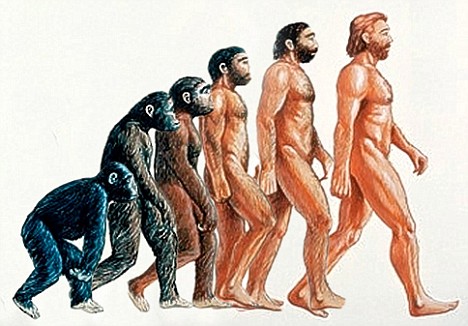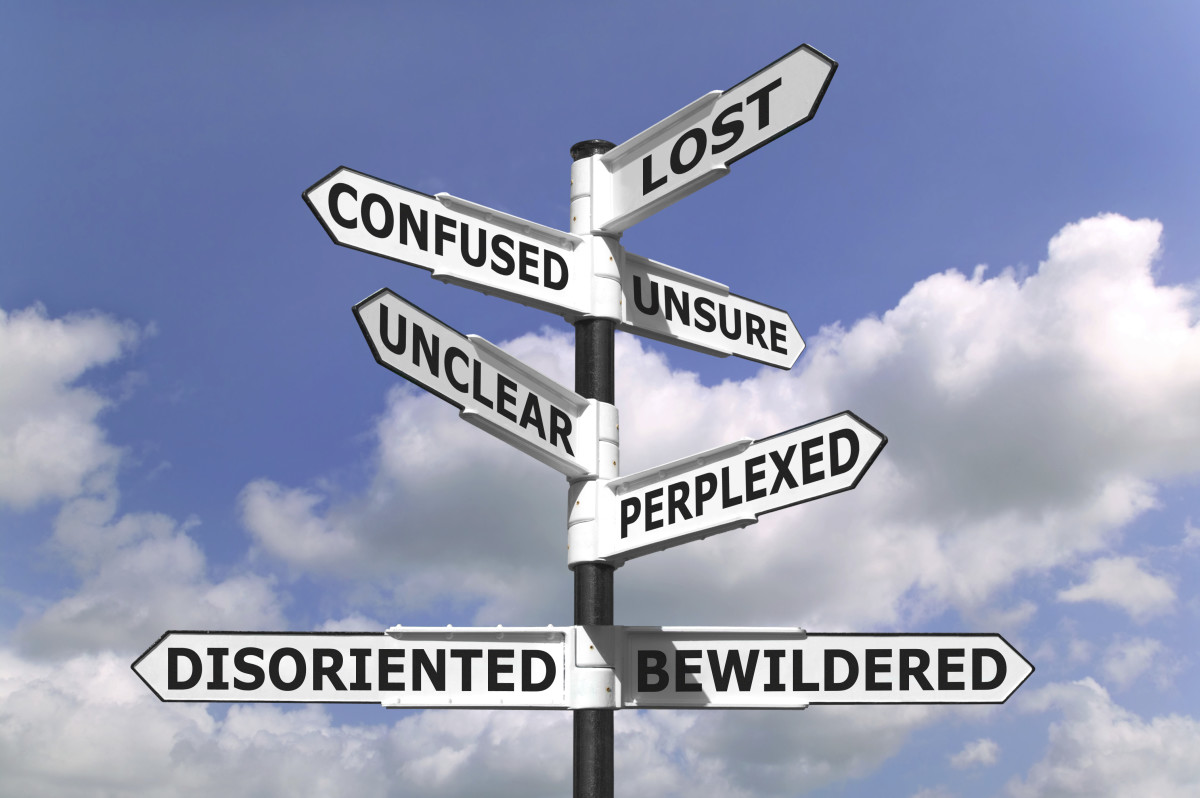The Limitations of Proofreading Software
Montage of grammatical errors

What is Proofreading Software?
By proofreading software, I mean any software that helps people write text that's free from spelling and grammatical errors. We all make mistakes, but some people have more trouble than others. Let's see how computers can (or cannot) help us with this.
The Spell Checker
The first line of defense is our trusty spell check. Almost every word processor has one, and even web browsers and email clients often have some form of spell checking available. As you type, the spell checker will check every word against the list of words in its dictionary. If a word isn't in its dictionary, it'll indicate the offending word somehow, often by drawing a red squiggly line underneath. The more officious word processors will even decide to correct it for you.
What it can do
A spell checker is practically essential, even to the most adept writers. Everyone can make an accidental key stroke, so it's nice to have some safeguard against it slipping past you.
What it can't do
Where the spell checker fails is when a misspelling actually forms a different valid word. This can happen through an accidental key press, but also because you may be familiar with some rules. For example, affect and effect are often confused. The basic rule is actually pretty simple, but then there are exceptions to this rule.
This can be further compounded when using the auto-correct function of some word processors. Misspelling as you type can result in it being corrected, often without you noticing. The replacement is often a valid word, but unfortunately not the word you intended. It's always best to turn this off. Even if you struggle with spelling, it's better to choose a corrected word yourself than let the computer decide.
The Grammar Checker
To get round the limitations of the spell checker, many word processing applications have a grammar checker as well. Microsoft Word has had this feature for a while, and there are plugins for Open Office.
What it can do
In my experience, I find that grammar checkers do occasionally catch errors for me. They occasionally highlight a subject-verb agreement (SVA) error or other error that I might have missed while typing. It will also occasionally highlight errors that aren't really errors, such as split infinitives and ending a sentence with a preposition. These false hits may be annoying, but you always have the final say on whether you want to change something or not.
What it can't do
Grammar is just a set of rules, right? Computers are good at following rules. So, why we can't we have a grammar checker that's perfect, or even just near perfect? It basically comes down to the fact that computers do not understand English.
To be able to apply grammatical rules, you need to understand the context. To understand the context, you need to understand the language. Computer's simply cannot do this at the moment, nor will they be able to do this for some time.

Solution: Get a Human
If you need a piece of text to be perfect, or maybe even just near perfect, you're going to need a human to proofread it and correct the errors. One option is to proofread it yourself. This is a cheap and easy option, but not always the best solution because writers often miss mistakes in their own work. This can be especially true if English is not your first language.
Another option is to get a friend to do it for you. If you're at college, why not swap work with someone else on the same course and proofread each other's work?
If you really want to be sure though, hiring the services of a professional proofreader can result in some very polished text. It may cost as little as a cent a word.







